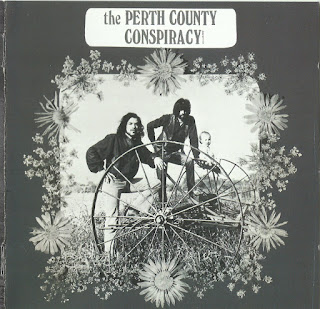Janis Joplin’s time in the San Francisco blues crew Big Brother and the Holding Co. was relatively short, only a couple of years — just long enough to record two albums and become an era-defining flashpoint at the Monterey Pop Festival. Their second album, 1968’s Cheap Thrills, became an acid-rock landmark thanks to the barnburner “Piece of My Heart,” a sultry cover of “Summertime” and the crushing, epic cover of Big Mama Thornton’s “Ball and Chain.” It went to Number One and was certified gold and within a few months of its release, Joplin quit to become a solo star.
The new compilation, Sex, Dope & Cheap Thrills, takes its title from the band’s original pitch for the name of the LP (the squares at the record label weren’t having it) and contains nearly two-and-a-half hours of alternate takes and live recordings from the Cheap Thrills era. Most of them are previously unreleased. The live recording of “Ball and Chain” sports a heavier beat and Joplin’s double-fried vocals — a stunning performance — followed by unreasonably polite applause. The three alternate takes of “Piece of My Heart” have a similar energy to the more familiar version, but show just how vibrant Joplin was at the sessions. And the second disc’s first take of “Summertime” captures a brilliant performance that would have been a thing of legend if the band hadn’t fallen apart at the end.
Other standouts include the foot-stomping “How Many Times Blues Jam,” an extended, wailing take on “I Need a Man to Love” and a charging, soulful take of “Combination of the Two.” There’s also studio banter, like Joplin cackling gloriously and saying, “I knew it was gonna take us all night,” before the ninth take of the oddball “Harry” and three takes of “Turtle Blues” on which Joplin talks out the feel of the song.
Also notable are the liner notes. The Jefferson Airplane’s Grace Slick remembers Joplin as a vivacious, joyful force and the Big Brother band as having a “down home” vibe. Meanwhile, drummer Dave Getz offers lively accounts of making the album and working with illustrator Robert Crumb on its problematic, iconic cover – and how the latter was stolen only to be sold at auction for a quarter of a million dollars. It’s the Janis Joplin bonus content you never knew you wanted.
by Kory Grow
Tracks
Disc 1
1. Combination Of The Two (Take 3) (Sam Andrew) - 5:33
2. I Need A Man To Love (Take 4) (Janis Joplin, Sam Andrew) - 8:06
3. Summertime (Take 2) (Dorothy Heyward, George Gershwin) - 4:11
4. Piece Of My Heart (Take 6) (Bert Berns, Jerry Ragovoy) - 4:56
5. Harry (Take 10) (Dave Getz, James Gurley, Janis Joplin, Peter Albin, Sam Andrew) - 1:12
6. Turtle Blues (Take 4) (Janis Joplin) - 4:47
7. Oh, Sweet Mary (Janis Joplin) - 4:24
8. Ball And Chain (Live) (Big Mama Thornton) - (7:29
9. Roadblock (Peter Albin, Janis Joplin) - 5:43
10.Catch Me Daddy (Take 1) (Dave Getz, James Gurley, Janis Joplin, Peter Albin, Sam Andrew) - 5:34
11.It's A Deal (Take 1) (Dave Getz, James Gurley, Janis Joplin, Peter Albin, Sam Andrew) - 2:42
12.Easy Once You Know How (Take 1) (Dave Getz, James Gurley, Janis Joplin, Peter Albin, Sam Andrew) - 4:35
13.How Many Times Blues Jam (Dave Getz, James Gurley, Janis Joplin, Peter Albin, Sam Andrew) - 5:27
14.Farewell Song (Take 7) (Sam Andrew) - 5:03
Disc 2
1. Flower In The Sun (Take 3) (Sam Andrew) - 3:14
2. Oh Sweet Mary (Janis Joplin) - 6:55
3. Summertime (Take 1) (Dorothy Heyward, George Gershwin) - 3:14
4. Piece Of My Heart (Take 4) (Bert Berns, Jerry Ragovoy) - 4:07
5. Catch Me Daddy (Take 9) (Dave Getz, James Gurley, Janis Joplin, Peter Albin, Sam Andrew) - 3:16
6. Catch Me Daddy (Take 10) (Dave Getz, James Gurley, Janis Joplin, Peter Albin, Sam Andrew) - 4:22
7. I Need A Man To Love (Take 3) (Janis Joplin, Sam Andrew) - 7:09
8. Harry (Take 9) (Dave Getz, James Gurley, Janis Joplin, Peter Albin, Sam Andrew) - 1:11
9. Farewell Song (Take 4) (Sam Andrew) - 4:28
10.Misery'n (Takes 2, 3) (Dave Getz, James Gurley, Janis Joplin, Peter Albin, Sam Andrew) - 3:58
11.Misery'n (Take 4) (Dave Getz, James Gurley, Janis Joplin, Peter Albin, Sam Andrew) - 4:58
12.Magic Of Love (Take 1) (Mark Spoelstra) - 3:19
13.Turtle Blues (Take 9) (Janis Joplin) - 4:00
14.Turtle Blues (Last Verse Takes 1, 3) (Janis Joplin) - 4:35
15.Piece Of My Heart (Take 3) (Bert Berns, Jerry Ragovoy) - 4:32
16.Farewell Song (Take 5) (Sam Andrew) - 5:13
Big Brother And Holding Company
*Peter Albin- Bass, Vocals
*Sam Andrew - Guitar, Vocals
*David Getz - Drums
*James Gurley - Guitar, Vocals
*Janis Joplin - Vocals
1968/70 Janis Joplin - Joplin In Concert (2007 japan blu spec hard paper sleeve two discs set remaster)
1970-71 Big Brother And The Holding Company - Be A Brother / How Hard It Is (2008 acadia reissue)
Free Text
Just Paste




























